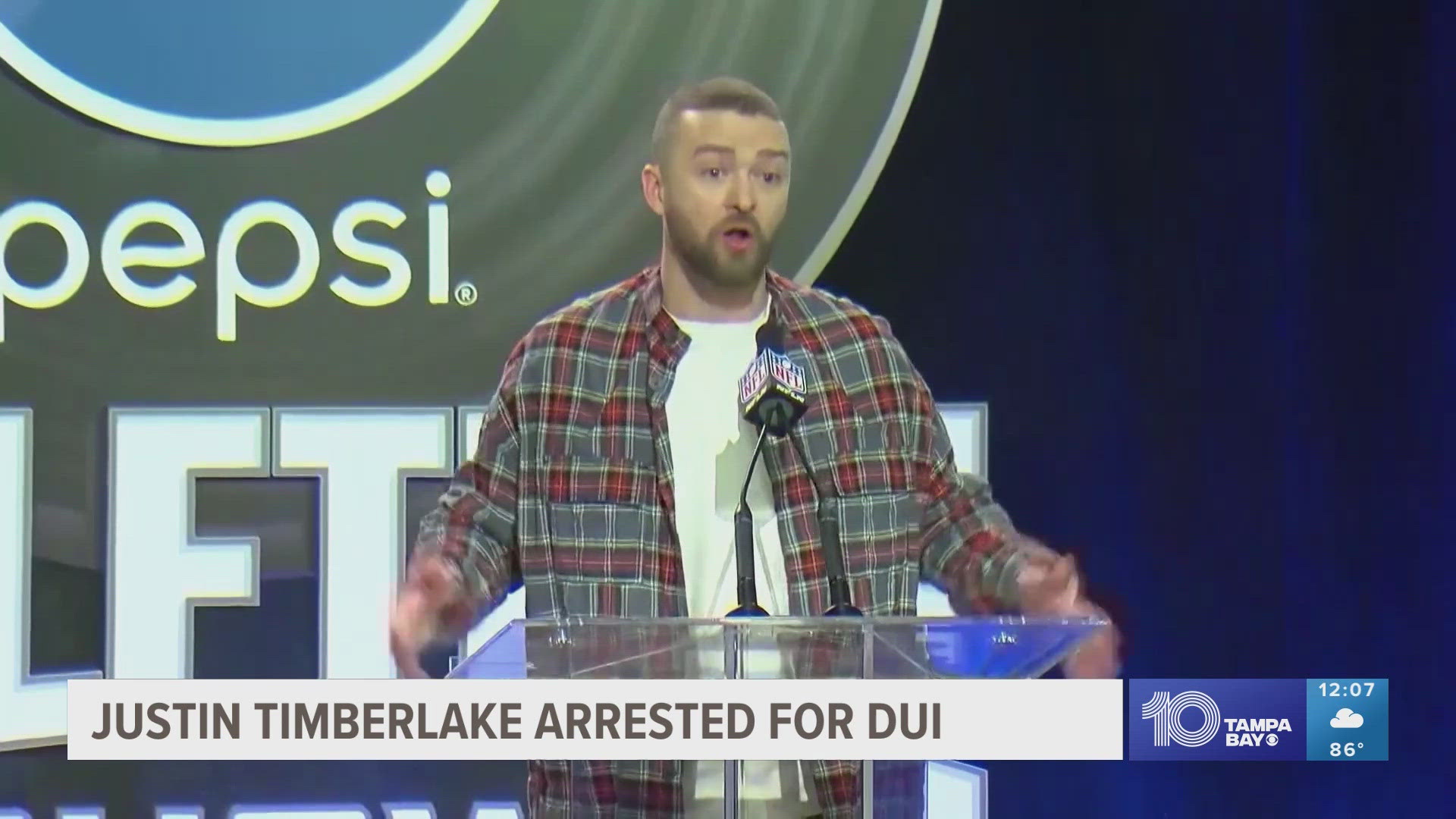TAMPA, Fla. — With news of pop star Justin Timberlake getting charged with DWI overnight in the Hamptons, people may be left wondering — what is a DWI? And how is it different than a DUI?
Generally speaking, DUI stands for driving under the influence, and DWI stands for driving while intoxicated or driving while impaired.
But when you look at specifics, it gets a bit more complicated. In some states, DUI and DWI can be used interchangeably. In others, they mean different things and have different consequences. Some states, like Florida, don't use the term DWI at all.
DUI vs. DWI
In Florida, DUI means “driving or being in actual physical control of a vehicle while under the influence of alcohol or controlled substances to the extent your normal faculties are impaired."
This is proved by "impairment of normal faculties or an unlawful blood alcohol or breath alcohol level of .08 or above." This BAC of .08 is the DUI threshold in most states, except Utah where it's .05.
DUI charges in Florida come with different fines and penalties that you can review on the Florida Highway Safety and Motor Vehicles website.
DWI can be synonymous with DUI in some states. In others, DWI can refer to impairment caused by drugs other than alcohol. Some states consider DWI a lesser charge than DUI.
In New York, where Timberlake was arrested, you can be charged with DWI if you have a BAC of .08 or higher — the same definition as a Florida DUI.
New York has some of the most complicated drunk driving laws; Forbes broke them all down.
In addition to DUI and DWI, drivers throughout the country may come across terms like operating under the influence (OUI), operating while intoxicated (OWI) or driving while ability impaired (DWAI.)
RELATED: Rapper Sean Kingston and his mother stole more than $1 million through fraud, authorities say
The difference between a DWI and a DUI becomes relevant when, for instance, someone gets arrested for DWI in another state and later arrested for DUI in Florida.
If that first state's DWI definition matches Florida's DUI definition, the Florida arrest will be treated as a second DUI and therefore carry increased penalties.
Regardless of what you call it, these charges mean an officer thinks a driver is too impaired to be on the road. And whichever three-letter charge shows up, it's not a good look for your driving record.

